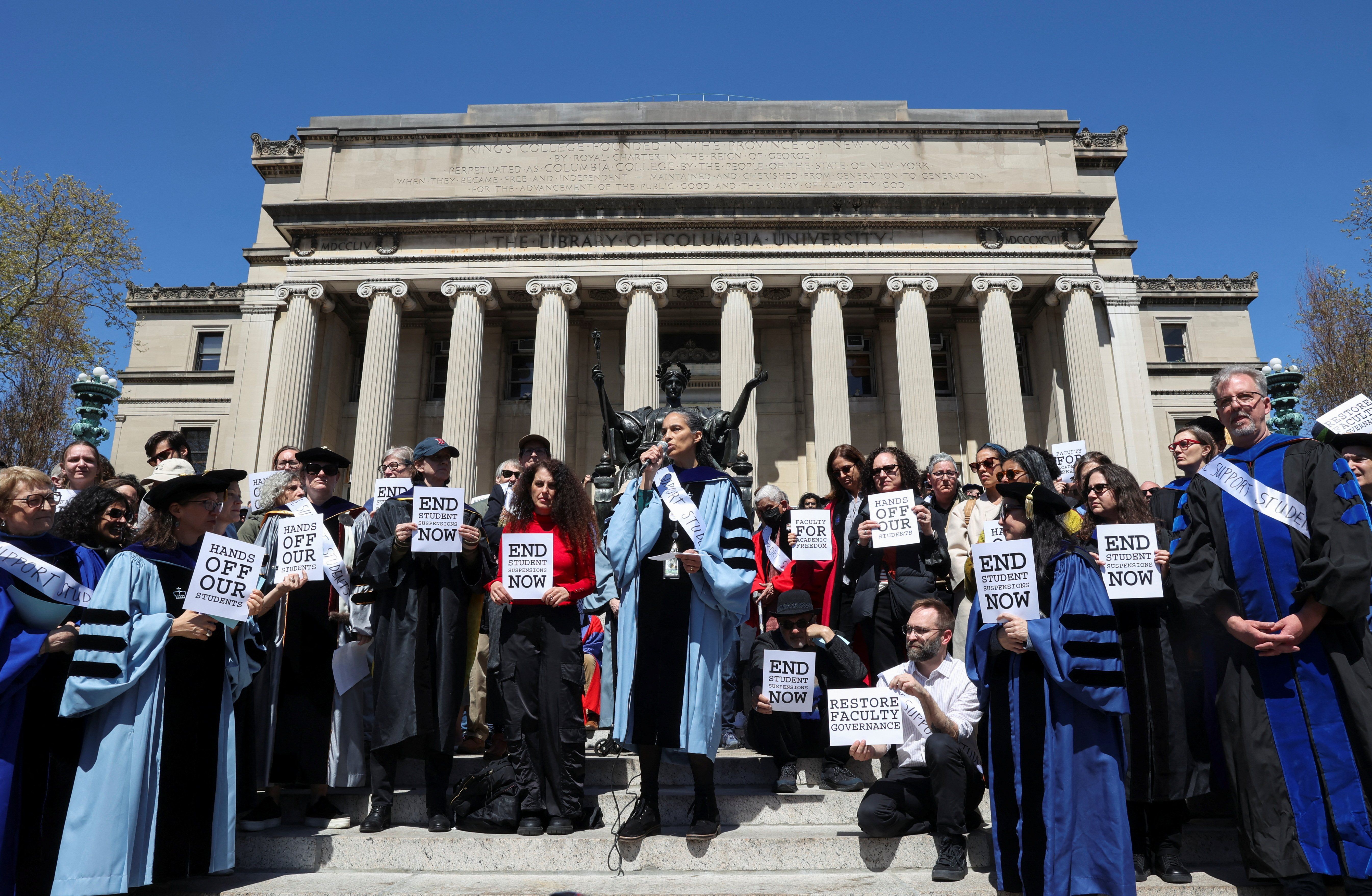Protests over the war in Gaza were spreading to colleges beyond Columbia University on Monday. At Yale University, 50 pro-Palestine protestors were arrested, while Harvard University shut down its lawns for the week over rumors that an encampment similar to the one occupying the Columbia lawns was being organized.
Meanwhile, pro-Palestine protesters at New York University have breached school barricades and taken over the campus plaza, where they have vowed to stay despite orders from school administrators to vacate.
At Columbia – where unrest has continued to grow over the 108 students arrested last week – classes have gone online, and the “Gaza Solidarity Encampment” is bigger than ever on its sixth day. Professors held a rally on the library steps calling for university President Nemat Shafik to resign over concerns about institutional freedom after her Congressional hearing last Wednesday, and outrage over her decision to arrest and suspend students.
And it’s not just the professors. Earlier Monday, all of New York’s GOP House members signed a letter, calling on Shafik to resign. The school also lost the support of billionaire Robert Kraft, who said he’s lost confidence in the university’s ability to protect Jewish students.
